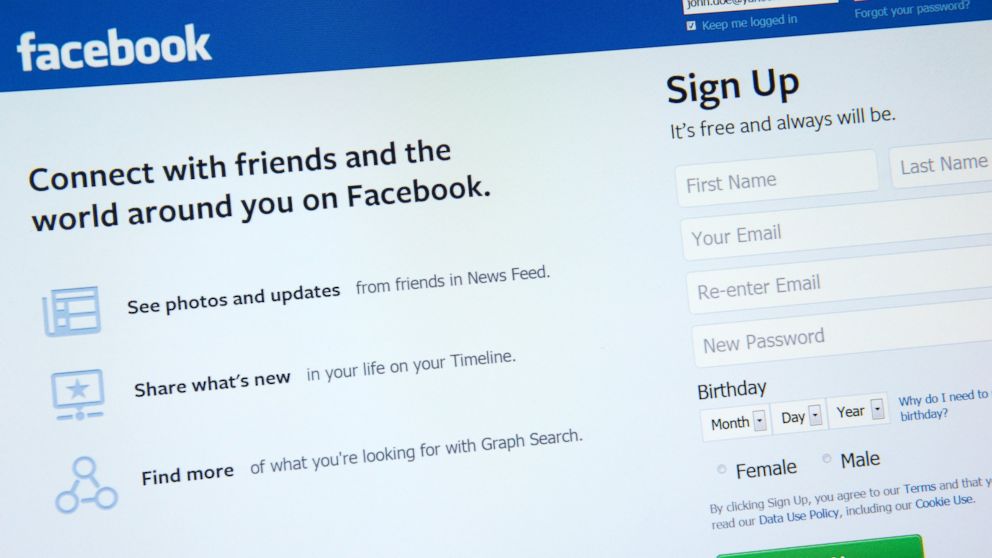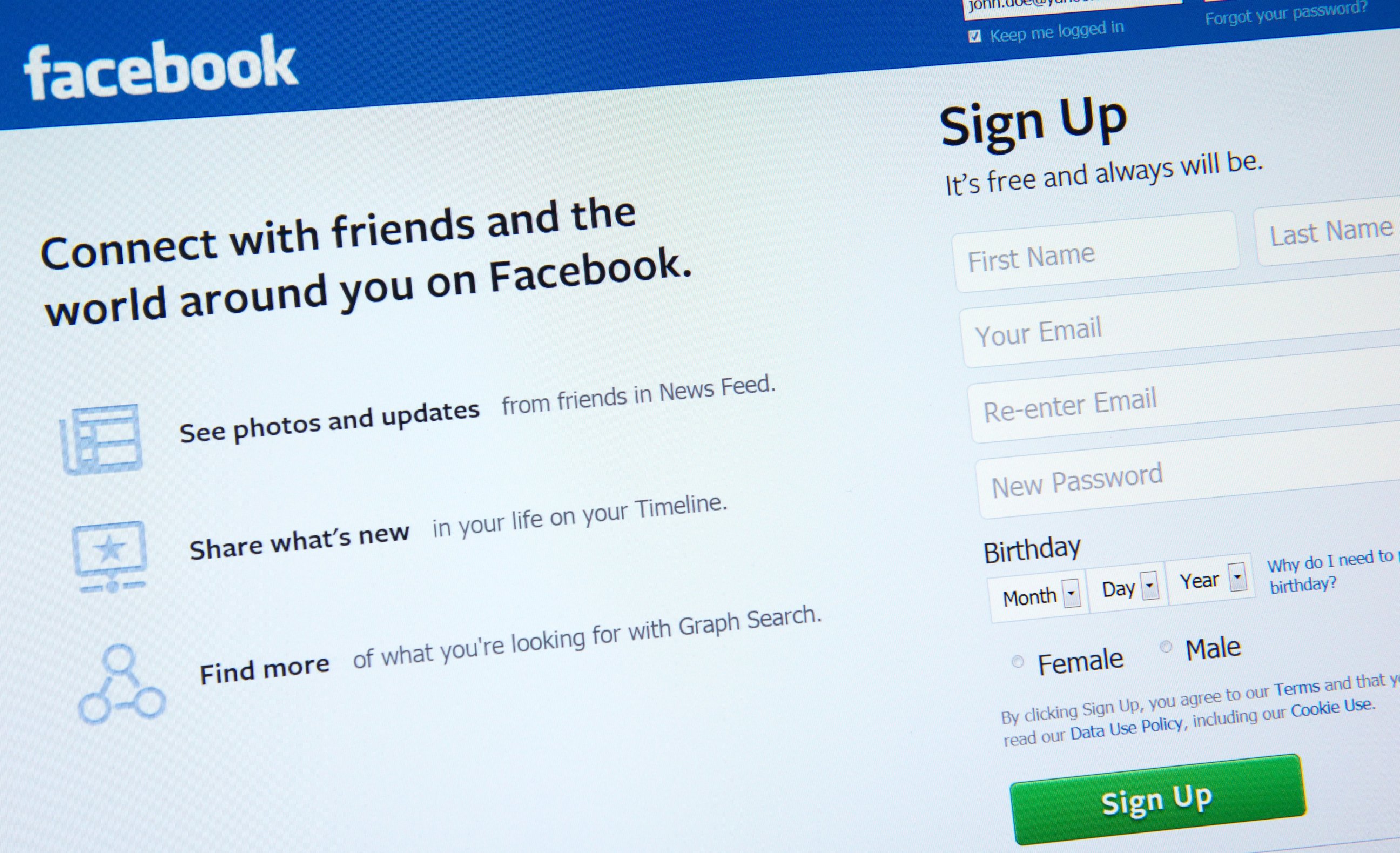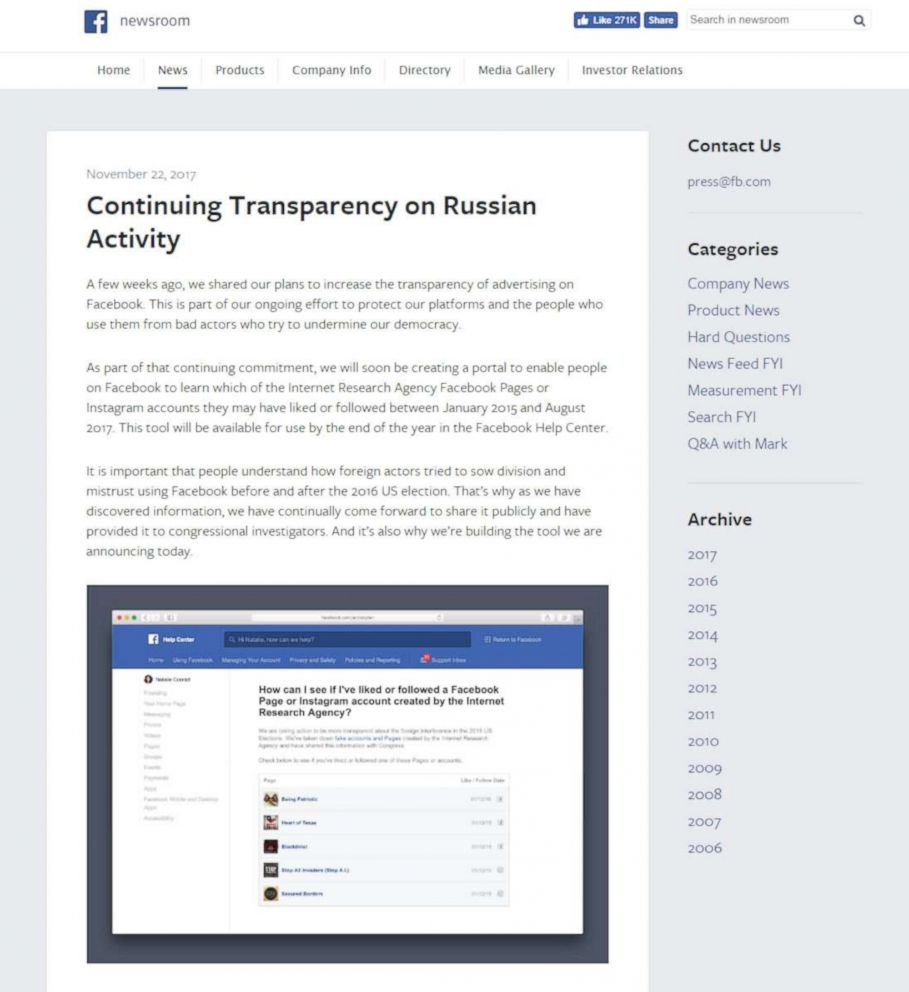Facebook will let users know if they liked Russian-linked election propaganda
Facebook announces a database of Russian-linked pages and accounts for users.

— -- Facebook has developed a new tool that it says will allow users to see if they liked or followed accounts and content linked to a Russian internet company that was outed as a troll farm after the 2016 elections.
The extent of Russian meddling in the presidential election is the subject of multiple investigations and a U.S. intelligence community assessment that the country waged overt and covert campaigns in an attempt to interfere with the political process.
The feature will allow users to see which, if any, accounts made by the Internet Research Agency — a Russian internet company that was revealed as a troll farm after the election and purchased some 3,000 ads — they liked or followed from January 2015 to August 2017.
It will show not specific ads or posts that users may have seen but only the pages and accounts a user has liked or followed.
The tool is set to be available by the end of the year in the Facebook Help Center.

The social media giant has said that potentially 150 million people have seen the Russian-linked content on Facebook and Instagram.
"This is part of our ongoing effort to protect our platforms and the people who use them from bad actors who try to undermine our democracy," wrote Facebook in a press release.
"It is important that people understand how foreign actors tried to sow division and mistrust using Facebook before and after the 2016 U.S. election," the company wrote. "That's why as we have discovered information, we have continually come forward to share it publicly and have provided it to congressional investigators. And it's also why we're building the tool we are announcing today."
Facebook is among the tech giants that have recently come under scrutiny for what some say is their lack of attention to Russian activity on their platforms during the 2016 election season.
This month Facebook joined Twitter and Google for open hearings with House and Senate committees investigating Russian meddling in the 2016 election. In Facebook's hearing with the House Intelligence Committee, the committee requested that the company notify users who had been targeted or exposed to content associated with Russia's efforts in the campaign.
Facebook CEO Mark Zuckerberg has launched a handful of initiatives that he says aim to provide better security and transparency for the social network.

The ranking Democrat on the House Intelligence Committee, Rep. Adam Schiff of California, was quick to praise Facebook's announcement, saying in a statement Wednesday, "The move by Facebook to allow users to see if they liked or followed pages created by the Kremlin-linked Internet Research Agency is a very positive step."
"We look forward to additional steps by the companies to improve transparency with respect to Russian abuse of their platforms and urge them to furnish a joint report on how Russia used these platforms to sow discord and influence the election," he added.
Last month Facebook announced a new effort to make its advertising more transparent by letting users know who paid for ads — particularly political ones — and beefing up its requirements for authenticating advertisers and its enforcement against ads in violation of its policies.
Facebook previously announced that in an effort to increase transparency for advertisements in the future, it will make it possible to see what ads pages are running as well as require confirmation of people's identities before they may buy U.S. election ads.
Facebook has also said it was hiring 10,000 engineers, ad reviewers and security experts to better identify violations and fake accounts in addition to updating its policies to block ads that are proved fake by third-party fact-checking organizations.
In order to address fake news, Facebook initiated work to stop misinformation by removing potential financial incentives for advertisers and made updates to clickbait stories in the spring.



